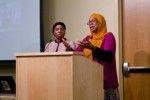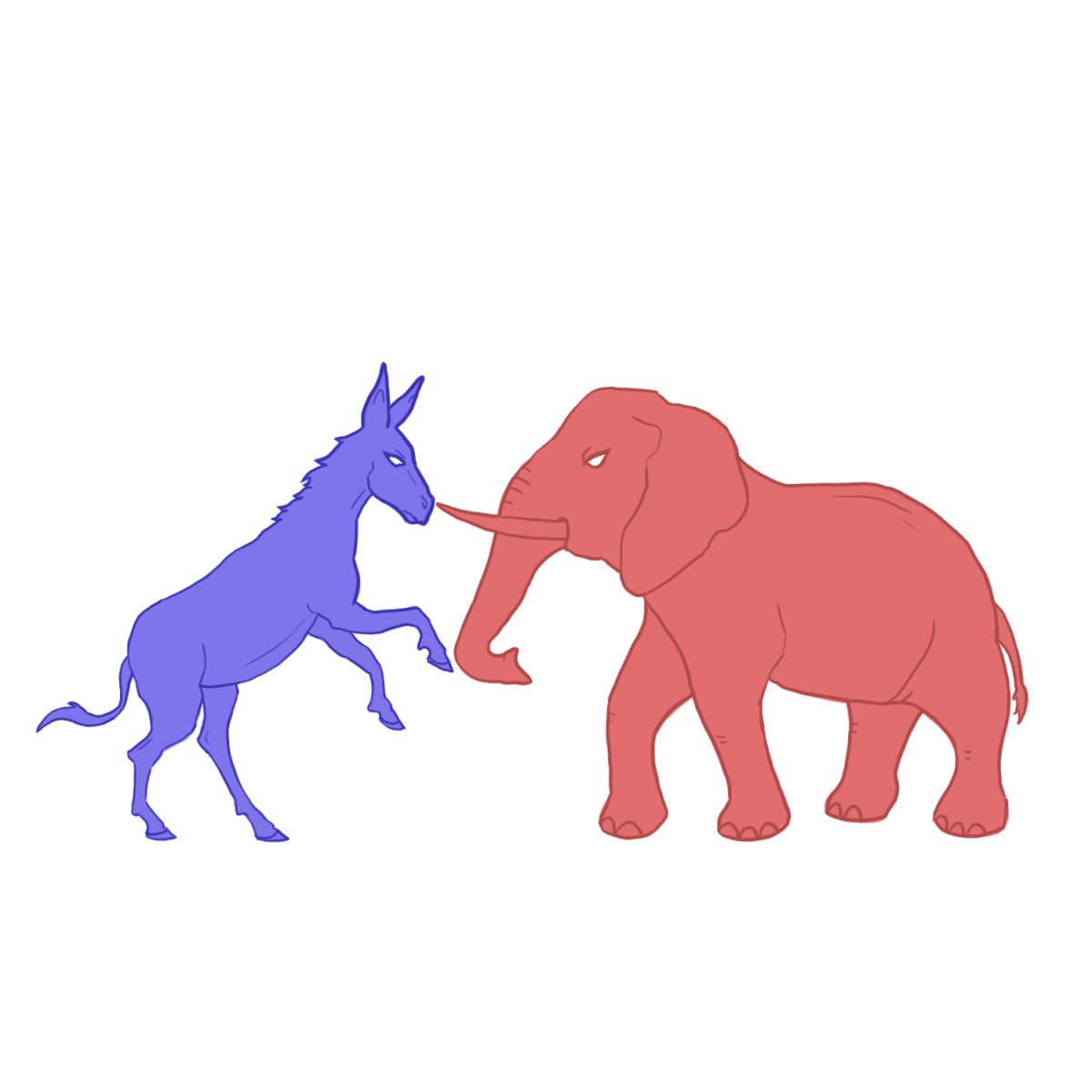Planes fell from the sky on Sept. 11, 2001, leaving a scar the U.S. sought to repair, sometimes under at the vilification of the Islamic community in America.
Since the terrorist attacks, many Muslims have had their reputation affected by a radical group that also claims the name of Islam. And eleven years later, the U.S. still remembers the attack.
A showing of the film, Mooz-lum, was presented by the MSCs Carter G. Woodson Black Awareness Committee, which highlighted the struggles of rectifying a Muslim identity with an American identity.
A discussion followed with Rebecca Hankins, associate professor, certified archivist and A&M librarian, as well as Nafisah Hankins, Class of 2010, who is working on her thesis on identity constructions of African-American Muslims at the City University of New York. Members of the Muslim community were also interviewed to explore aspects of the experiences of the Islamic community in a post-9/11 America.
Most of the Muslim organizations, if not all of them, condemned it, said Anwer Ahmed, a professor of accounting at the Mays Business School and the President of the Islamic Community of Bryan-College Station, when speaking of the tragedy of Sept. 11.
Sena Karasipahi, a professor with the Department of International Studies, spoke of the contradiction of the terroristic acts of 9/11 and the actual religion of Islam.
The first meaning of Islam is submission and peace submission to the will of God. A parallel meaning of Islam is peace, Karasipahi said. And then after 9/11, Islam, which literally means peace, began to be associated with killing and terrorism.
The attacks of 9/11 began to immediately define the relations non-Muslim Americans had with Muslim Americans.
Before 9/11, we never felt as strangers or aliens. After 9/11 is the first time it sort of struck us, that hey, perhaps we are not really Americans, Ahmed said. Essentially, there used to be an assumption of innocence until proven guilty, and now that is reversed for Muslims. You are presumed guilty until proven innocent.
After 9/11, the Muslim community became framed as a community of violence.
Their image is destroyed as being Muslims. They began to be associated with aggression, suicide bombings, terrorism, all kinds of terroristic activities, Karasipahi said.
Ahmed said hes personally experienced the prejudices against the Muslim community when he was travelling, and the majority of his family had been put in handcuffs, while the younger children were forced to sit and watch.
Just imagine for an eight-year old, your parents are being handcuffed, you dont know whats going on, Ahmed said. What sort of impression did it leave on him? Thats the reality as an American Muslim.
Because the community was seen as violent, violent acts began to become socially acceptable towards those of the Muslim faith. Senior economics major Ibi Tayyab recalled that after 9/11, a bomb was put in the mailbox of her mosque. This violent posture is still maintained today.
Our mosque gets threats all the time. Its sad because it doesnt scare me, it doesnt shock me because its so common, Tayyab said. Thats the saddest part that its just an everyday thing to you.
As the film Mooz-lum highlighted, these prejudices often find agency not only through adults, but also through the mouths of children and adolescents. Tayyab recalled stereotypes that she has experienced.
People will literally ask me if Im a terrorist. Theyll be like, Is your dad Osama bin Laden? Tayyab said. Theyll ask me if my husband hits me, if Im married and if Im one of three wives. Or like, if Im being taught to pursue Holy War on the West.
Mooz-lum and Rebecca and Nafisah Hankins spoke to the hardships of rectifying the religious identity of a Muslim and the cultural identity of an American. Nafisah said her sister struggled with these two identities.
It took her a long time to get to the point where she felt like she can practice Islam in America, be American and not have to adapt an ideology, or even just the wardrobe of someone from the Middle East, Nafisah said.
Though in the Muslim religion, these ideologies can peacefully intertwine, non-Muslims may not share this belief. Before Sept. 11th, Karasipahi said there was a prevailing ignorance of the Islamic religion.
Before 9/11, there was a certain degree of neutrality because people dont know how [Muslims] are living or what the religion is about, Karasipahi said. They didnt feel the need to know much about the other societies, other perspectives, other religions.
The solution that Dr. Ahmed offered was a proactive perspective from people who care about America and its values and freedoms.
I think its going to take a lot of education, its going to take a resolve on the part of good people, Ahmed said.
Mooz-lum concludes with the idea one shared by the Muslim community of acceptance: I beg you not to let a few people shape your view on an entire faith.
Students discuss post-9/11 social issues after Mooz-Lum screening
September 12, 2012

0
Donate to The Battalion
$2165
$5000
Contributed
Our Goal
Your donation will support the student journalists of Texas A&M University - College Station. Your contribution will allow us to purchase equipment and cover our annual website hosting costs, in addition to paying freelance staffers for their work, travel costs for coverage and more!
More to Discover









